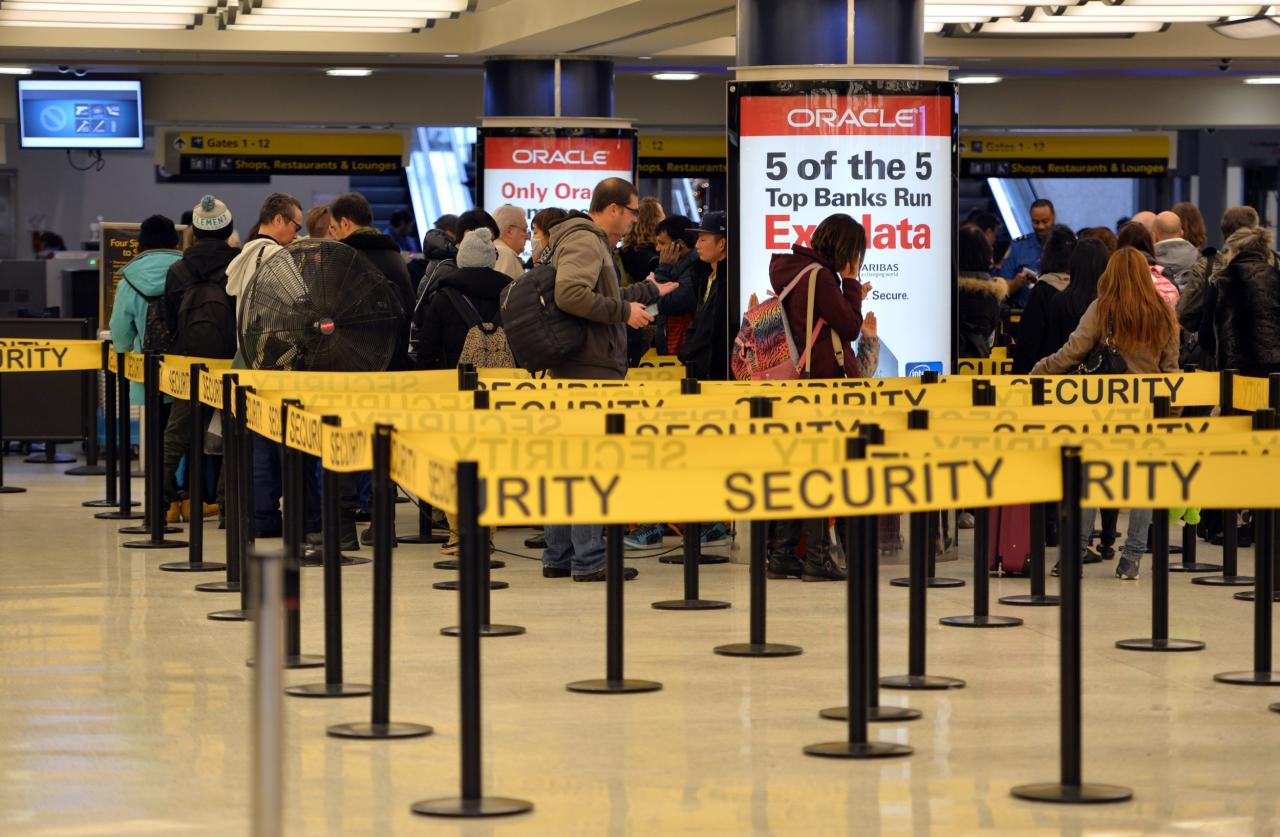Airlines Cancel Flights Due to Strikes is a headline that echoes through the travel industry, sending ripples of frustration among passengers worldwide. When labor disputes force airlines to ground their planes, the fallout can be significant, impacting not just itineraries but also the broader travel economy. Understanding the reasons behind these strikes and their implications helps shed light on this pressing issue.
Labor strikes within the airline industry often arise from disputes over working conditions, pay, and job security, leading to a cascade of flight cancellations. Travelers find themselves grappling with unexpected changes to their plans, while airlines must navigate the challenges of public relations during these disruptions. As strikes become more common, the conversation around labor rights and corporate responsibilities grows increasingly relevant.
In today’s fast-paced world, where technology and information flow at lightning speed, the ability to adapt and evolve has never been more crucial. The landscape of various industries is transforming, influenced by innovations, consumer demands, and global events. This piece aims to explore the dynamics shaping our lives and examine how individuals and organizations can navigate these changes effectively.### Understanding Change in the Modern EraChange is a constant in life; however, the rate of change we experience today can be overwhelming.
From the rise of artificial intelligence to shifts in workplace culture, the modern era demands a proactive rather than reactive approach. Organizations that embrace change are better positioned to thrive. But, what does this mean for the average person?Adopting a growth mindset is essential. This concept, popularized by psychologist Carol Dweck, suggests that our abilities and intelligence can be developed through dedication and hard work.
It fosters resilience and encourages individuals to embrace challenges, learn from criticism, and ultimately reach their full potential.### The Impact of Technology on Our LivesTechnology plays a significant role in shaping societal norms and personal lifestyles. The advent of smartphones, social media, and the internet of things (IoT) has transformed how we communicate, work, and engage with the world around us.
#### Communication and ConnectivityGone are the days when communication was limited to face-to-face interactions or phone calls. Today, we have a plethora of platforms to connect with others, whether through instant messaging apps, video calls, or social networks. This connectivity allows us to maintain relationships across distances, share experiences in real-time, and access a wealth of information at our fingertips.However, this constant connectivity comes with its challenges.
The pressure to be perpetually available can lead to burnout and anxiety. Striking a balance between online interactions and personal well-being is crucial. Setting boundaries, such as designated offline times, can help mitigate these effects and foster a healthier relationship with technology.#### Work Culture TransformationThe traditional workplace has undergone a seismic shift, particularly in light of the COVID-19 pandemic. Remote work has become the norm for many, forcing companies to rethink their operational strategies and employee engagement methods.
As flexible working arrangements gain popularity, employees are discovering the benefits of a better work-life balance. However, this shift also raises questions about productivity, collaboration, and the future of office space. Employers must find innovative ways to keep their teams connected and motivated, even while working from different locations.### The Role of Education in Adapting to ChangeEducation serves as the cornerstone of personal and professional development.
In an ever-changing world, lifelong learning is essential to stay relevant. Traditional educational frameworks are evolving, incorporating technology to provide more dynamic and interactive learning experiences.#### Embracing Online LearningOnline courses and platforms have democratized access to education, allowing individuals to learn at their own pace and pursue interests outside their formal education. This flexibility encourages continuous development and skill acquisition, which is vital in a competitive job market.However, as we embrace online learning, we must also acknowledge the importance of self-discipline and motivation.
The absence of a structured environment can be a double-edged sword; while it fosters independence, it can also lead to procrastination. Establishing a routine and setting specific goals can help maximize the benefits of online learning.### The Importance of Mental Health AwarenessAs the pace of change accelerates, mental health has emerged as a critical topic in both personal and professional contexts.
Awareness and acceptance of mental health issues have grown, but stigma still exists. #### Destigmatizing Mental HealthOrganizations are increasingly recognizing the importance of mental wellness in the workplace. Providing resources, such as counseling services and mental health days, demonstrates a commitment to employee well-being. On an individual level, fostering open conversations about mental health can help break down barriers. Sharing experiences and encouraging vulnerability can create supportive environments where individuals feel safe seeking help.#### Practicing Self-CareIn the midst of uncertainty and change, self-care has become more important than ever.
Prioritizing mental health involves recognizing when to step back and recharge. Simple practices, such as mindfulness, exercise, and pursuing hobbies, can significantly impact overall well-being.### Building Resilience for the FutureResilience is the ability to bounce back from adversity, and it is a crucial skill in navigating change. Developing resilience means cultivating a positive mindset, maintaining strong social connections, and embracing challenges as opportunities for growth.#### Strategies for Fostering Resilience
1. Cultivate a Support Network
Surround yourself with positive influences, whether friends, family, or mentors. Having a support system can provide encouragement and guidance during challenging times.
2. Practice Gratitude
Regularly reflecting on what you are grateful for can shift your focus from negativity to positivity, enhancing your overall outlook.
3. Set Realistic Goals
Break down larger goals into manageable steps. This approach not only makes tasks less daunting but also provides a sense of accomplishment as you achieve each milestone.
4. Embrace Change

Rather than resisting change, view it as an opportunity for growth. Embracing new experiences can lead to personal and professional development.### The Future of Work and SocietyAs we look to the future, the interplay of technology, education, and mental health will shape the next generation of work and society. The ability to adapt and thrive in an ever-changing landscape will be paramount.#### The Rise of Hybrid Work ModelsThe future of work will likely see a blend of remote and in-office arrangements.
Hybrid models offer flexibility while maintaining opportunities for collaboration and teamwork. Organizations that successfully implement hybrid strategies will be better positioned to attract and retain talent.#### The Emphasis on Employee Well-BeingAs mental health awareness continues to grow, employee well-being will remain a focal point for organizations. Companies that prioritize mental health initiatives will foster loyalty and productivity among their workforce.### ConclusionNavigating the currents of change can be challenging, but it also presents opportunities for growth and innovation.
By embracing a growth mindset, prioritizing mental health, and cultivating resilience, individuals and organizations can thrive in this dynamic landscape. As we move forward, let us remain adaptable and open to the possibilities that lie ahead. The future is not something we enter; it is something we create together.
Key Questions Answered: Airlines Cancel Flights Due To Strikes
What causes airlines to cancel flights due to strikes?
Airlines typically cancel flights due to strikes arising from disputes over wages, working conditions, or job security among airline staff.
How can I find out if my flight is affected by a strike?
Travelers can check their airline’s official website or contact customer service for real-time updates on flight statuses and cancellations.
What are my rights as a passenger if my flight is canceled due to a strike?
Passengers are generally entitled to compensation or rebooking options depending on the airline policy and the regulations in their country.
Will airlines provide accommodations for stranded passengers?
Many airlines offer accommodations for stranded passengers, but this varies by airline policy and the circumstances surrounding the strike.
Is there a way to avoid flights affected by potential strikes?
Travelers can monitor labor news and airline announcements, and consider flexible booking options to minimize the impact of potential strikes.






